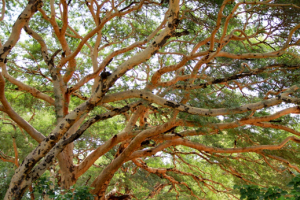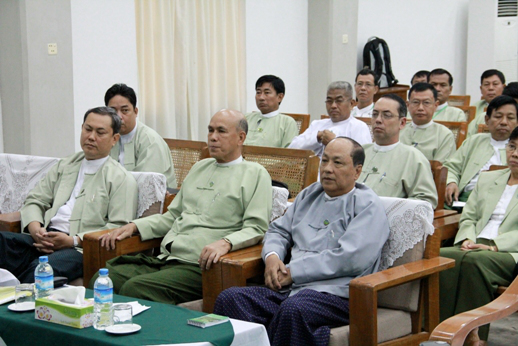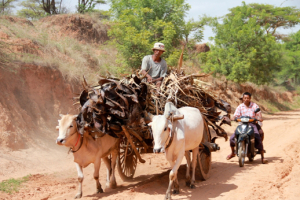Scoping a Path for Community Forestry in Myanmar

A key challenge facing Myanmar as it opens up to outside development aid and trade is the careful management of its abundant natural resources and forests. It has the opportunity to put some sound environmental and community forestry policies in place, before the negative impacts of unplanned growth lead to irreversible losses. Building the country’s capacity to manage its forests equitably while protecting them and using them as a sustainable natural resource is a big task, but one which begins with small steps. RECOFTC – The Center for People and Forests has been operating in Myanmar to support community forestry development since 2011.
On 13 - 14 August 2012, the Planning and Statistics Department and the Forest Department under the Ministry of Environmental Conservation and Forestry of Myanmar together with RECOFTC, jointly organized the First National Community Forestry Roundtable Meeting with key actors in community forestry. Supported by the Royal Norwegian Government through the Norwegian Embassy in Thailand, the aim of this meeting was to identify, consolidate and prioritize recommendations made in previous Community Forestry events so government agencies and civil society could explore potential opportunities for its development.

Altogether there were 39 like-minded people from the Planning and Statistics Department, Forest Department, Dry Zone Greening Department, University of Forestry, and representatives from civil society who wanted to make community forestry in Myanmar more progressive. At the roundtable meeting, participants gave priority to six main interventions that could support community forestry development. They include the development of a community forestry law, establishment of a community forestry government unit, a capacity building and research program for government and non-government personnel, establishment of a national working group, and a neutral platform for practitioners. Brief ideas and plans for making each intervention viable were discussed. Participants from both government and civil society were happy to share their commitments and contributions to support these interventions. They appreciated the roundtable as a good start for bringing practitioners from government, academic institutes, and civil society together, and supported the idea of holding such meetings regularly.

In a follow up, the Forest Department of the Forest Research Institute together with RECOFTC, conducted a Community Forestry Action Research Formulation Meeting for research teams from different line agencies and representatives from civil society. The event was supported by the Swiss Agency for Development and Cooperation (SDC) through the ASEAN-Swiss Partnership on Social Forestry and Climate Change (ASFCC). The meeting was set against a backdrop of efforts by the Government to promote community participation in forest management, however it requires some research to overcome barriers to improving community forestry in the country, as well as embracing the opportunities available.
The meeting aimed to help participants understand the fundamentals of action research and how participatory action research fits with community forestry; create a framework for developing a Participatory Action Research (PAR) project or undertakings related to community forestry, and finally to design an action research plan to address key issues in forest management and community forestry.
There were 30 participants from the Planning and Statistics Department, Forest Department, Dry Zone Greening Department, University of Forestry and representatives from NGOs gathered together in the Nyaung Oo Township Dry Zone Greening Office, Mandalay Division. Participants had an opportunity to use basic tools to formulate the research framework and try it out in real community forestry settings. At the end of the meeting, participants identified key research topics and developed analytical frameworks within which they will need to conduct participatory action research in the next 12 months.
This action research will be conducted by the Forest Research Institute with partners such as they University of Forestry under funding through the ASEAN-Swiss Partnership on Social Forestry and Climate Change. The research topics included:
- How existing land tenure and rights affect the development of CF in Myanmar.
- Socio-economic potential of community forestry (including non-certified community forests) in Myanmar.
- Review of the processes for community forestry establishment (i.e. communities getting certificates for their forests).

At the meeting, participants agreed that there is a big need to improve the research capacity for community forestry development. Most are familiar with Scientific Forestry Technical research, but less so with social and participatory action research. RECOFTC will provide more technical and coaching support to the research team as they conduct their PAR for CF in the next 12 months.
For more information on our capacity building program in Myanmar please contact ronnakorn@recoftc.org.

